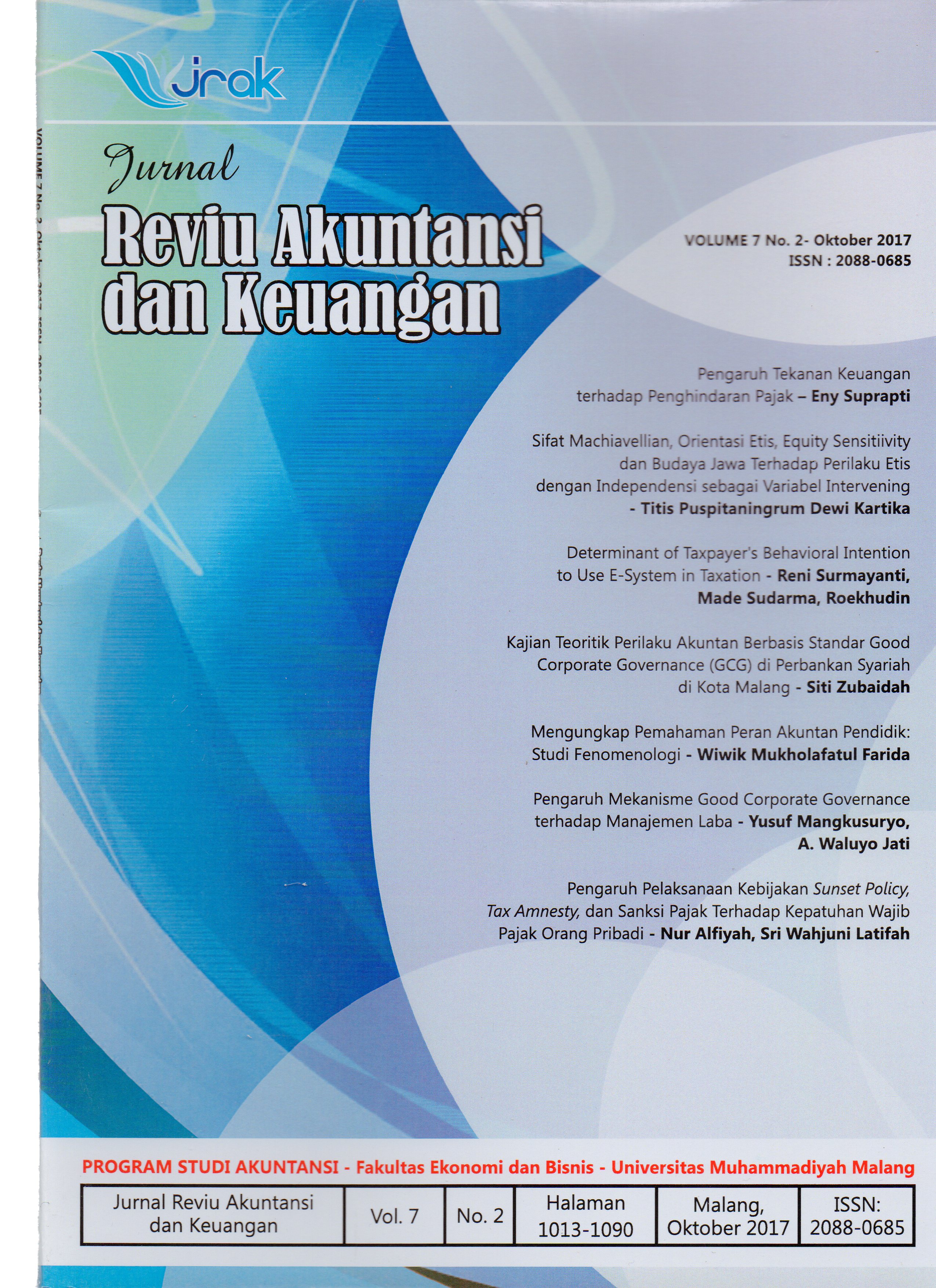KAJIAN TEORITIK PERILAKU AKUNTAN BERBASIS STANDAR GOOD CORPORATE GOVERNANCE (GCG) DI PERBANKAN SYARIAH DI KOTA MALANG
DOI:
https://doi.org/10.22219/jrak.v7i2.18Abstract
This study aims at long-term to analyze the behavior of accountants based on Good Corporate
Governance (GCG) standard in Sharia Banking. The specific target you want to achieve is to map
the accountant’s behavior profile. The method used to achieve this goal is by using descriptive
analysis. This study uses accountant respondents are all independent auditors who work at
Public Accounting Firm (KAP) located in the city of Malang. The sampling technique uses judgment sampling which is one of the purposive sampling. Judgment sampling is to select a sample
based on an assessment of some characteristics of sample members that are tailored to the
intent of the researcher. Characteristics of this study sample is the auditor KAP in the city of
Malang who has had experience working as an auditor in Islamic banking at least 1 year. Data
were collected through questionnaire and analyzed by descriptive method which describe and
explain about behavior of accountant in syariah banking. The results of this study indicate the
concept or formulation of the accountant’s behavior in conducting audits and a set of useful
knowledge to enrich the scientific field of Islamic accounting (transparency), accountability,
responsibility, professionalism and fairness.
Keywords:Accountant behavior, GCG, sharia banking.
Downloads
Downloads
Published
Issue
Section
License

Jurnal Reviu Akuntansi dan Keuangan is licensed under a Creative Commons Attribution-NonCommercial-ShareAlike 4.0 International License.
Authors who publish with this journal agree to the following terms:
- Authors retain copyright and grant the journal right of first publication with the work simultaneously licensed under a Creative Commons Attribution-NonCommercial-ShareAlike 4.0 International License that allows others to share the work with an acknowledgement of the work's authorship and initial publication in this journal.
- Authors are able to enter into separate, additional contractual arrangements for the non-exclusive distribution of the journal's published version of the work (e.g., post it to an institutional repository or publish it in a book), with an acknowledgement of its initial publication in this journal.
- Authors are permitted and encouraged to post their work online (e.g., in institutional repositories or on their website) prior to and during the submission process, as it can lead to productive exchanges, as well as earlier and greater citation of published work (See The Effect of Open Access).










